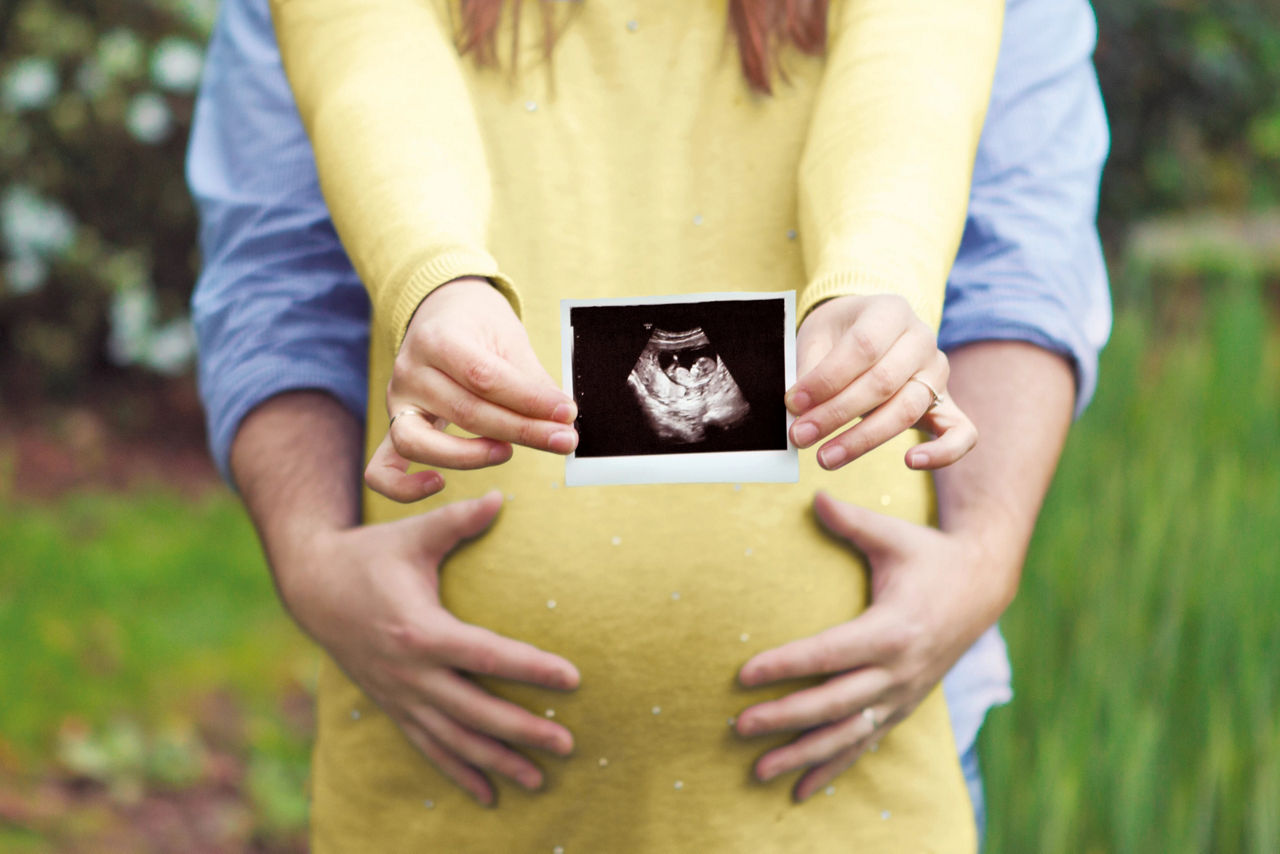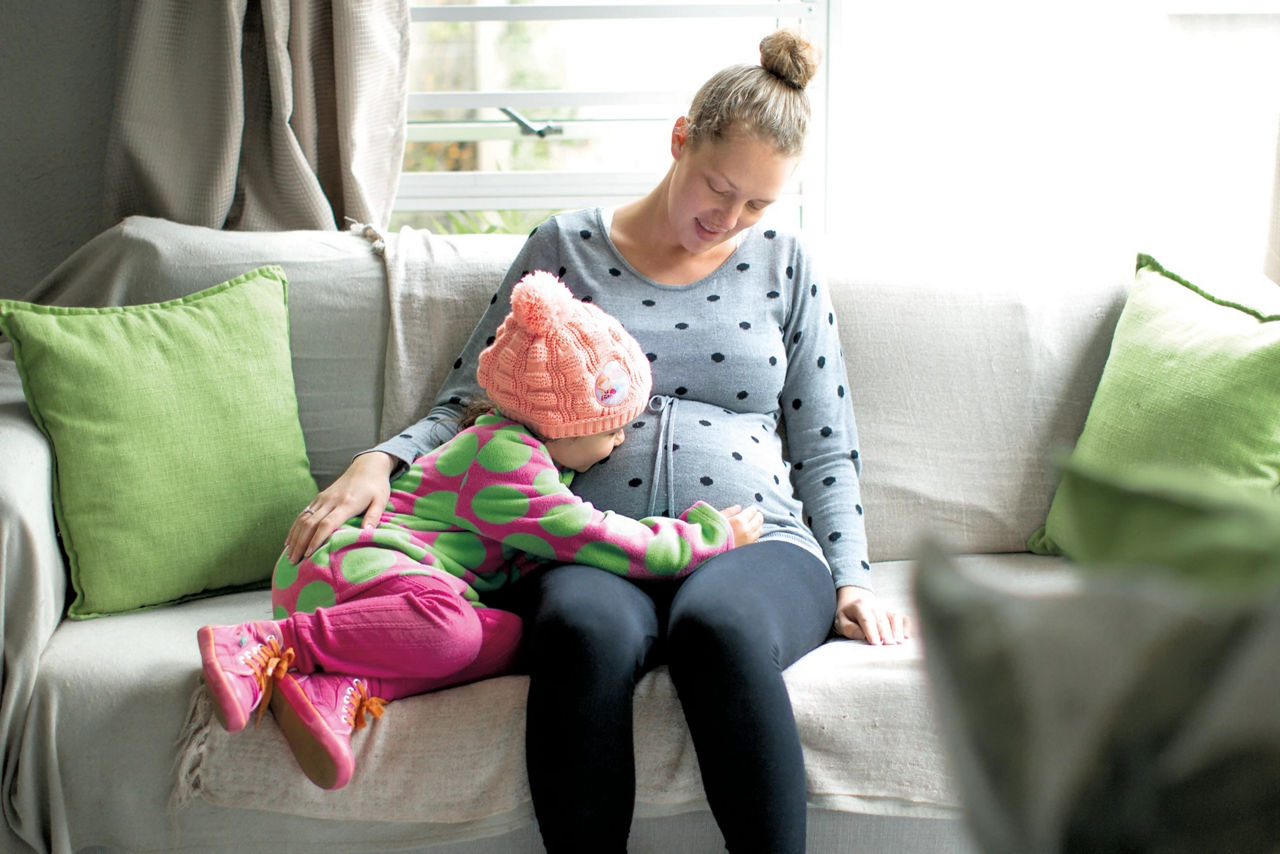Free weaning plan - Register here
It may not be as well-known as morning sickness or those weird and wonderful cravings, but dizziness in pregnancy is a symptom that many women experience.
Although relatively common, dizziness in pregnancy can be unsettling to deal with, leaving you feeling less than your blooming best! Here you’ll find lots of helpful information about the different causes of dizziness during every stage of your pregnancy, handy tips on how to manage it, and when to seek medical advice.
Causes of dizziness in early pregnancy
Dizziness is especially common in early pregnancy. In fact, it’s sometimes one of the first tell-tale signs that you’ve got a little one on the way1.
During the first trimester of pregnancy, your body experiences many hormonal changes. Higher levels of oestrogen and progesterone increase the supply of blood to your womb to meet the needs of your baby1. Other hormonal changes cause your blood vessels to relax, causing your blood pressure to drop. This can leave you feeling dizzy and faint because less blood flows to your brain1.
Low blood sugar levels can also cause dizziness in early pregnancy1, 2, so try your best to eat a healthy pregnancy diet. This is also a great excuse to keep some tasty, healthy, energy-boosting snacks at the ready!
In addition, if you’re experiencing morning sickness, it’s very important to drink plenty of fluids to stay hydrated3 and keep dizziness at bay.
Causes of dizziness in the second trimester
As you enter your second trimester, you may find that some of the more unpleasant early pregnancy symptoms are starting to ease off. However, it may be that your blood pressure is still lower than it usually would be - a common culprit when it comes to the causes of dizziness in pregnancy4. Take care when standing up or getting out of bed - even if you do have an extra second-trimester ‘spring’ in your step.
Some women experience a condition called ‘vertigo’ during their pregnancy or find that their balance is affected as their pregnancy progresses. This is thought to be due to hormonal changes affecting the amount of fluid in the inner ear5.
As your bump gets bigger, your growing uterus can put additional pressure on the blood vessels that lead to your heart1. Try your best not to sleep on your back during your second and third trimester, as this can make this even more pronounced and leave you feeling dizzy.
Low blood sugar could also be another factor during the second and third trimester of your pregnancy, which for some women could indicate gestational diabetes. Your midwife will ask you some questions during your booking appointment, and if you’re found to be at an increased risk for gestational diabetes, you’ll be offered a screening test anywhere between weeks 24 and 28 of your pregnancy6.
Causes of dizziness in the third trimester
Low iron levels or iron deficiency anaemia is a relatively common cause of dizziness in pregnancy, affecting around 4 out of 10 women7, 8. Whilst some women experience this early on in their pregnancy, it usually becomes more apparent during your third trimester9.
You’ll need around 2-3 times more iron than usual when pregnant. It’s very important for9, 10:
- Helping your body when you give birth.
- Your baby’s development and growth in the womb.
- Producing the red blood cells that carry blood around your body.
Try to include plenty of iron-rich foods in your diet, such as red meat, nuts and fortified breakfast cereals (11). You can read more about the importance of iron in pregnancy here.
During your third trimester, dizziness in pregnancy could be a sign of pre-eclampsia. Your midwife will be checking for any sign of preeclampsia during your antenatal appointments, including having protein in your urine and high blood pressure. If you experience any of the following, it’s important to seek medical advice12:
- Painful and severe headaches.
- Problems with your vision.
- Swelling of the hands, feet or face.
Tips on avoiding dizziness during pregnancy
With a growing uterus and bigger bump, your sense of gravity will shift and potentially affect your balance - not ideal if you’re already experiencing dizziness in pregnancy.
Remember that pregnancy is a time to take care of yourself, so it’s essential to listen to your body and do whatever you can to enjoy a healthy pregnancy. If dizziness in pregnancy is proving to be a bother, try some of our top tips to keep you feeling tip-top (and upright!)1:
- Don't get up too quickly from your bed or chair., and give yourself a few minutes once you stand.
- Avoid laying on your back, especially in your second and third trimester.
- Go easy on hot baths and try to stay cool. Due to all the hormonal changes, overheating is common during pregnancy, so stick to loose clothing and cool showers. Take care when getting out of the shower or bath, too.
- If you have to stand for any length of time, try clenching your bum muscles or wriggling your toes to keep your circulation going. If you feel up to it. Some light exercise can also help your circulation.
- Don’t go hungry or skip meals, otherwise your blood sugar levels could drop. Try to eat a healthy balanced diet and keep those snacks close at hand.
- Get your blood pressure checked by your midwife or doctor.
- Drink plenty of fluids to stay hydrated.
When to seek medical advice
Dizziness during pregnancy can make some women feel as though they’re about to faint. If this is the case, you may feel lightheaded, cold, clammy, and confused. You may also experience blurred vision or a ringing in your ears1. If this happens, try to tell someone, and sit or lie down if possible.
If you faint, it’s always a good idea to get checked over by your healthcare professional, and you should definitely do so if you1:
- Fell and landed on your baby bump.
- Notice that your baby’s movements have changed.
- Hit your head.
- Have been diagnosed with pre-eclampsia.
- Have high blood pressure.
You should also seek medical advice if1:
- You notice that you have a shortness of breath.
- You have any pain in your chest and an irregular heartbeat.
- The dizziness in pregnancy persists and becomes difficult to manage.
- You have blurred or affected vision.
- You have any bleeding from your vagina or experience any abdominal pain.
- You have high blood pressure or pre-eclampsia.
Last reviewed: October 2024
Reviewed by Nutricia’s Medical and Scientific Affairs Team
- HSE. Dizziness and fainting in pregnancy [online 2023]. Available at https://www2.hse.ie/conditions/dizziness-and-fainting-pregnancy/#:~:text=The%20main%20causes%20of%20dizziness,you%20and%20avoid%20skipping%20meals. [Accessed June 2024]
- NHS. Low blood pressure (hypotension) [online 2023]. Available at https://www.nhs.uk/conditions/low-blood-pressure-hypotension/. [Accessed October 2024]
- NHS iform. Eating well in pregnancy [online 2024]. Available at https://www.nhsinform.scot/ready-steady-baby/pregnancy/looking-after-yourself-and-your-baby/eating-well-in-pregnancy/#:~:text=alcohol%20during%20pregnancy.-,Water,a%20well%2C%20borehole%20or%20spring. [Accessed October 2024]
- NHS Start for Life. 18 Weeks pregnant [online]. Available at https://www.nhs.uk/start-for-life/pregnancy/week-by-week-guide-to-pregnancy/2nd-trimester/week-18/. [Accessed June 2024]
- Serna-Hoyos LC, Herrón Arango AF, Ortiz-Mesa S, Vieira-Rios SM, Arbelaez-Lelion D, Vanegas-Munera JM, Castillo-Bustamante M. Vertigo in Pregnancy: A Narrative Review. Cureus. 2022 May 27;14(5):e25386. doi: 10.7759/cureus.25386. PMID: 35765386; PMCID: PMC9233861
- NHS. Gestational diabetes [online 2022]. Available at https://www.nhs.uk/conditions/gestational-diabetes/. [Accessed June 2024]
- Tommy's. Anaemia and pregnancy [online 2023]. Available at https://www.tommys.org/pregnancy-information/pregnancy-complications/anaemia-and-pregnancy. [Accessed June 2024]
- NHS University Hospitals Coventry and Warwickshire. Iron deficiency anaemia in pregnancy [online 2020]. Available at https://www.uhcw.nhs.uk/download/clientfiles/files/Patient%20Information%20Leaflets/Women%20and%20Children_s/Maternity/Iron%20deficiency%20anaemia%20in%20pregnancy%20FINAL.pdf. [Accessed October 2024]
- NHS Imperial College Healthcare. Preventing and treating anaemia during pregnancy [online 2018]. Available at https://www.imperial.nhs.uk/-/media/website/patient-information-leaflets/maternity-services/antenatal-care/preventing-and-treating-anaemia-during-pregnancy.pdf. [Accessed June 2024]
- NHS United Lincolnshire Hospitals. Low iron levels in your blood during pregnancy [online]. Available at https://www.ulh.nhs.uk/patients/patient-information-library/low-iron-levels-in-your-blood-during-pregnancy/. [Accessed June 2024]
- NHS. Vitamins and minerals: Iron [online 2020]. Available at https://www.nhs.uk/conditions/vitamins-and-minerals/iron/. [Accessed June 2024]
- NHS. Pre-eclampsia [online 2021]. Available at https://www.nhs.uk/conditions/pre-eclampsia/. [Accessed June 2024]

Join our baby club
Ready to stop worrying about what other people think and do what feels right to you? We’ll give you the support you need to follow your instincts and enjoy parenthood to the max:
Helpful emails
Non-judgemental support
Free weaning plan
Tips from real parents
More from pregnancy
Pregnancy topics
Need free advice with a smile? Get in touch with our dedicated Care team.
Ask us a question (8am - 8pm Monday to Friday, 10am - 4pm Weekends)
Messenger
Contact us on Facebook (10am - 10pm, 7 days a week)
Call us
Call us on 0800 977 8880 (8am - 8pm Monday to Friday)
FAQs
Get answers to your most frequently asked questions





